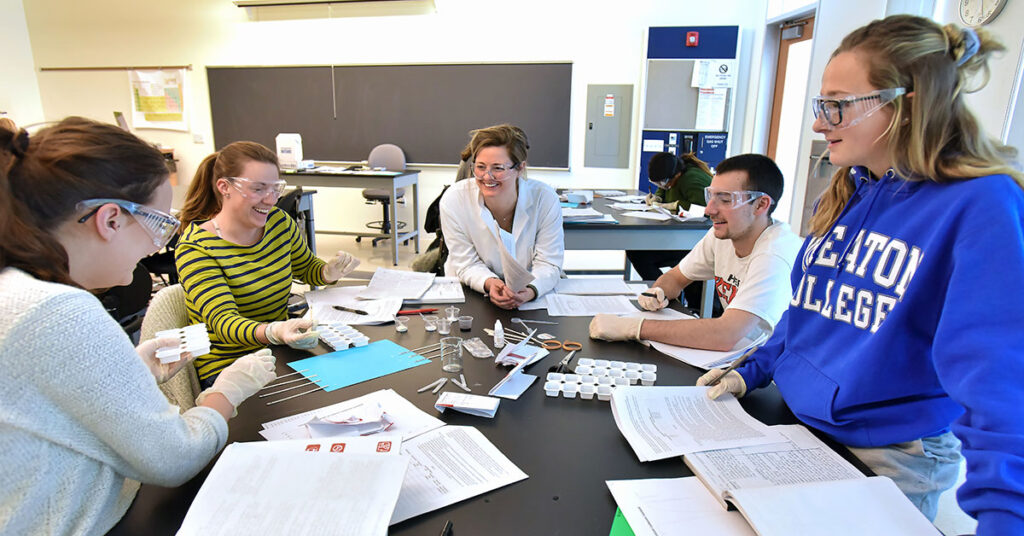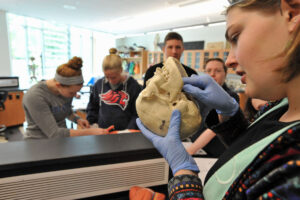Wheaton launches new majors in forensic science and medical science

Wheaton has launched two new interdisciplinary bachelor of science programs—forensic science and medical science—that draw on the college’s strengths in the sciences and the liberal arts to offer students the opportunity to focus their studies and prepare for careers in those fields.
The two new majors underscore Wheaton’s commitment to applied liberal arts and sciences. Provost Jonathan Millen said the new programs leverage the depth and breadth of the college’s academic offerings to connect students with their interests and prepare them for in-demand career trajectories.
“The medical science major contributes to our growing suite of health care programs including nursing, public health and our premed pathway while forensic science is a natural extension of our criminal justice and science programs,” Millen said. “And both of these new majors, like all of our majors, benefit from the flexibility afforded by the Compass Curriculum, the integration of the Life and Career Design Institute, and our deep tradition in the applied liberal arts and sciences.”
Both programs are now open and available to current students as well as first year and transfer students who are joining the college.

Associate Professor of Chemistry and Biochemistry Hilary Magruder Gaudet, who led planning for the new majors, pointed out that the college has a strong record already in preparing students for careers in these fields.
“These new majors build on the college’s strengths,” Gaudet said. “I’ve advised students in the sciences who have been interested in careers in forensics and in medicine, and in every case, they have gone on to very successful careers in their chosen fields. By establishing formal programs, we will be able to enhance students’ preparation for these careers with more classes focused specifically on their interests.”
Forensic science includes coursework in biology, chemistry, physics and criminal justice to prepare students for careers in crime laboratories, law enforcement and related fields. The program places an emphasis on laboratory skills, critical thinking, ethical practices and clear communication, equipping graduates to contribute to criminal investigations, legal proceedings and research in forensic applications. The program’s senior seminar will include case study analysis, mock investigation and an applied research project that allows students to synthesize their scientific and liberal arts learning in a way that showcases practical application.
Medical science provides students with a comprehensive foundation in the study of health, disease and medicine. Grounded in the biological and chemical sciences, the program prepares students for healthcare professions, biomedical research and graduate study. A defining feature of the program is the Capstone Health and Wellness Service Project, which extends learning into real-world contexts through community-based engagement.
